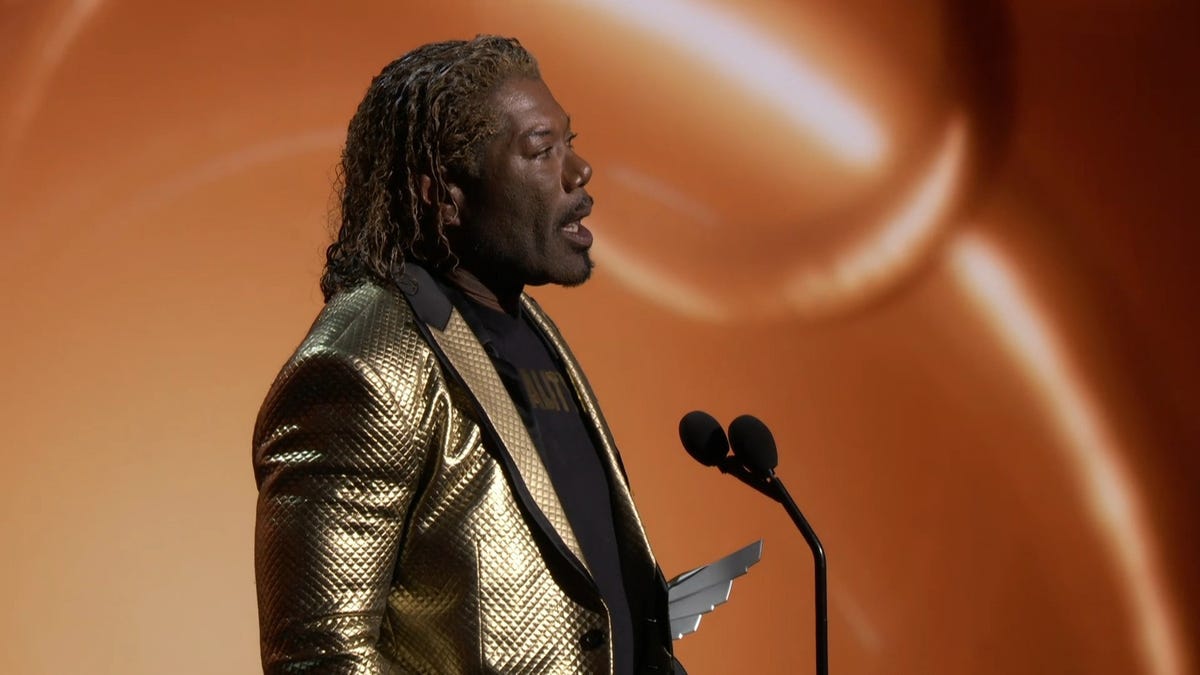When you visit the About page on The Game Awards website, one of the first lines of text will tell you the show aims to “bring together a diverse group” when celebrating and discussing the global video game industry. And while this is something founder Geoff Keighley and his team mostly manage to do each year, certain celebrated subsects of that industry end up being left as an afterthought.
Esports, while niche in the grand scheme of an industry on its way to bringing in $200 billion dollars annually, is still a key part of what makes the industry unique in the creative, technical, and entertainment aspects TGA strives to highlight. And yet, with each year featured, it seems the production cares less about treating that portion of the community with respect.
Anyone who didn’t watch the 30-minute pre-show leading up to the main event missed a decent chunk of the awards being handed out. This included Best Fighting Game, Best Family Game, and more. But only one selection of awards handed out during that section of the show was treated like a speedrun.
For five esports categories, the TGA broadcast spent a total of one minute and 12 seconds spotlighting them, blowing through each one with such little care that the host only read out the name of the award recipient rather than all of the nominees.
By comparison, Kratos’ voice actor for God of War Ragnarok Chris Judge gave a roughly eight-minute speech after winning Best Performance—the first award of the main show. That was the longest speech of the night by far and was memed by both the community and Keighley himself. But it just shows what kind of gap can exist, because most awards got at least three minutes on stage to shine or at the very least the full list of nominees read out loud.
Just going off of that gap in time, you wouldn’t expect to know Keighley and his team have highlighted the best teams and athletes in esports since the current iteration of TGA was introduced in 2014, expanding on that over time to include all five current categories. But as the years go on, esports is getting pushed to the side and treated as an afterthought on what is the premier gaming award show.
This isn’t necessarily the direct fault of Keighley or anyone planning the programming block for TGA, especially when this year’s show went through heavy changes to try and streamline itself and cut bloat to better keep audiences engaged. But this isn’t new, with the esports segment getting shorter and shorter every year since it was combined into a single segment and left the main stage in 2020.
Prior to that, Steph Curry awarded Fortnite pro Bugha with the best esports player on the main stage in 2019, following the likes of Shaq, Michael Phelps, and other big-name celebrities doing the same for other esports awards in years prior. And, in 2018, SonicFox made one of the most memorable acceptance speeches of all time while coming up on stage in their full fursuit.
Even when some of those esports-related segments were pre-recorded, like for Faker winning best player in 2017, it was better than being shoved entirely off to the side.
Over the last several years, Keighley and his team have been trying to format the show in a way to better hit its key audience.
The show went through a rather drastic restructuring this year, and considering it apparently hit new viewership peaks on Youtube and Twitch, the reworked approach worked. So, even with these frustrations, it’s understandable why this shift has happened.
Esports can’t be a main focus for a show dedicated to the wider games industry and the casual viewer tuning in to watch is most likely there for the new reveals and updates rather than even seeing the more mainstream awards. The interest isn’t there, which means something needs to change.
Whether Keighley and his team find some additional way to highlight the esports sections while still maintaining the faster pace of TGA or potentially collaborating with an esports-centric event or outlet like The Esports Awards, there are ways to go about improving this portion of the show that can work.
Regardless of how that fix is made, hopefully TGA can provide a better platform for a section of the community that provides a different type of look in the most “immersive, challenging, and inspiring form of entertainment.”


